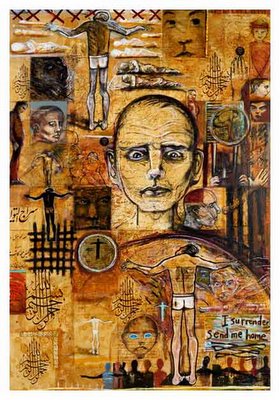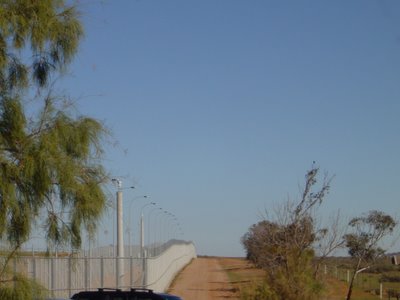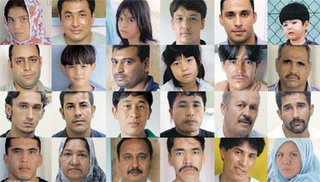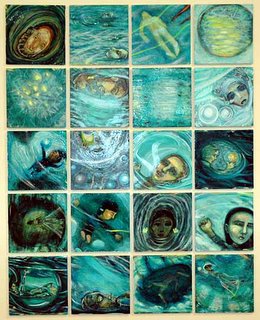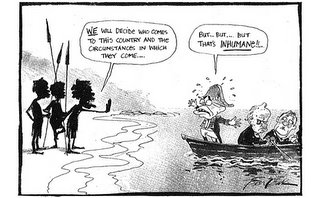After Three Years...

This past year particularly, my understanding of the clouded mess of refugee policy has deepened quite a lot. But I don't mean it's become any less clouded or messy. Actually, as I have got to know more people, learnt about the twists and turns of their cases and become more intimately involved in their lives, things have certainly become more complex, more difficult and a lot less clear-cut. I think an common trap for young players (by players I mean visitors / advocates etc) is to see an asylum seeker as 100% right at all times, and DIMIA or the centre guards or anyone else 100% wrong at all times. It's very easy to side with someone so categorically and so blindly that you can't really look at the picture objectively or with fresh eyes, so when something unexpected happens (a confrontation, an argument, a revelation of a side of a person which is not as pure & earnest as you'd thought it to be), often there'll be a sense of shock, followed (possibly!) by pretending it never happened! But this is crazy! Just because a person is a refugee or in detention doesn't wipe out everything they've done before. An important lesson to learn is to expect humanity. Fallibility, weakness, confusion and brokenness, as well as good hearts belonging to good people. Because aren't we ALL a mixture of those things...
I find it extremely difficult to watch people experiencing regret. Sometimes, when I'm at a detention centre and someone is talking about the choices they've made in their lives (be it someone who has escaped from a centre before, or not been completely honest, or something they've done to put themselves or their families at risk), they'll say things like "I wish i had done that differently" or "i wish i hadn't done that" or "if i had to do it again I would change everything..." But those words are empty and worthless, and the regrets they mask only serve to crucify them. The RRT LOVES to find a 2% discrepancy in an applicant's case. They absolutely go to town and back again on it, and suddenly an unwise decision, or a moment of bad judgement turns into the reason that someone won't be able to gain protection. Or they're accused of being a "LIAR!" in a public forum, in front of their friends and supporters, to their deep shame and chagrin. A moment of stupidity or momentary dishonesty - things that most of us can just deal with and move on from - become formative moments, points of public knowledge and irrevocable damage.
